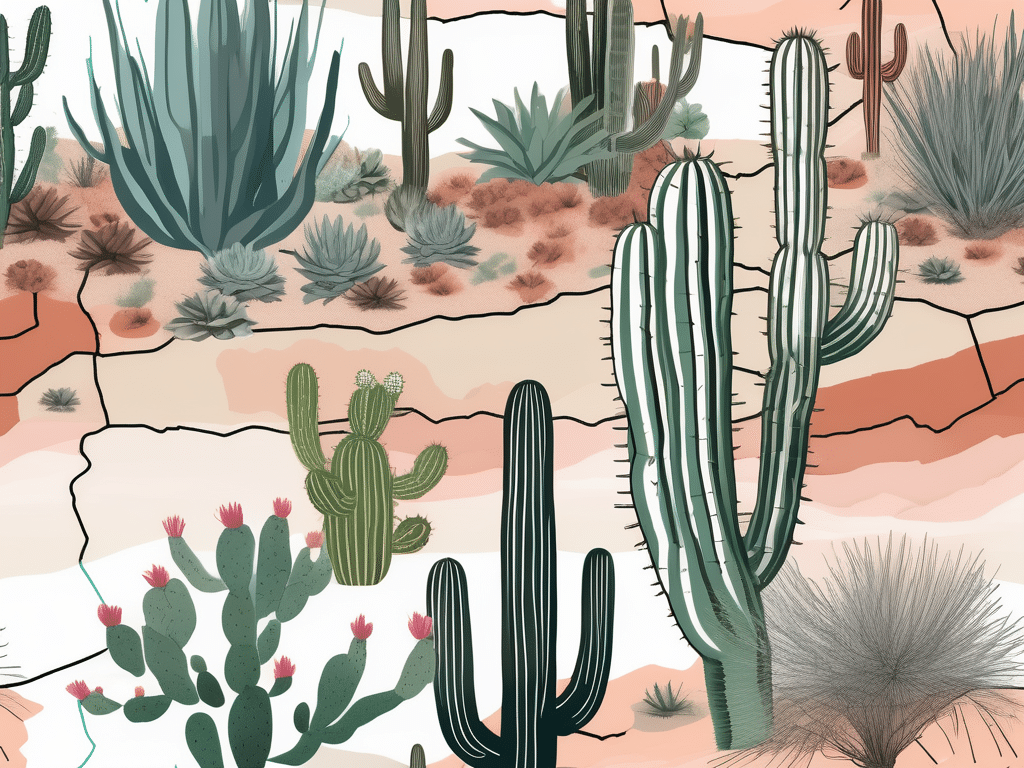When it comes to gardening, understanding your planting zone is crucial. It can help you decide which plants will thrive in your area and which ones might struggle. For those living in Dallas, Texas, this guide will provide you with a comprehensive understanding of your planting zone.
What is a Planting Zone?
A planting zone, also known as a hardiness zone, is a geographic area defined by the USDA to help gardeners identify plants that are most likely to thrive at a location. The zones are based on the average annual minimum winter temperature, divided into 10-degree Fahrenheit zones.
Planting zones are an essential tool for gardeners. They provide a guide to the types of plants that can grow in a particular region, based on the climate and weather conditions. This information can be incredibly valuable when planning a garden or landscape.
The Planting Zone of Dallas, Texas
Dallas, Texas, falls into USDA Hardiness Zone 8a. This means the average annual minimum winter temperature ranges between 10 to 15 degrees Fahrenheit. This zone is characterized by relatively mild winters and long, hot summers, which can influence the types of plants that thrive in this area.
However, it’s important to remember that the hardiness zone is just one factor to consider when choosing plants for your garden. Other factors such as soil type, sunlight, and water availability can also significantly impact a plant’s success.
What Does Zone 8a Mean for Gardeners in Dallas?
Being in Zone 8a means that gardeners in Dallas have a wide variety of plants to choose from. Many vegetables, fruits, flowers, and trees can thrive in this zone. Some examples include tomatoes, peppers, squash, peaches, roses, and oak trees.
However, gardeners should be aware that the hot summers and mild winters can present some challenges. For example, some plants may require extra watering during the summer months, while others may need protection from frost during the winter.
How to Use the Planting Zone Information
Knowing your planting zone is just the first step in successful gardening. It’s also important to understand how to use this information effectively. Here are some tips for gardeners in Dallas, Texas.
Choose the Right Plants
First and foremost, choose plants that are suitable for Zone 8a. This will increase your chances of gardening success. Check the plant tags or ask at your local nursery for plants that are hardy to your zone.
Remember, just because a plant is hardy in your zone doesn’t mean it will thrive in your specific location. Other factors such as soil type, sunlight, and water availability can also impact a plant’s success.
Plan for the Seasons
Zone 8a has a long growing season, but it’s important to plan for the hot summers and mild winters. Some plants may require extra care during these times. For example, you may need to water more frequently in the summer and protect sensitive plants from frost in the winter.
It’s also a good idea to plant in the early spring or fall when temperatures are more moderate. This can help plants establish themselves before the extreme temperatures of summer or winter.
Additional Resources for Dallas Gardeners
For more information on gardening in Dallas, Texas, consider the following resources. These can provide additional guidance on choosing and caring for plants in Zone 8a.
- The Dallas County Master Gardener Association offers a wealth of information on gardening in Dallas, including plant recommendations and gardening tips.
- The Texas A&M AgriLife Extension provides a variety of resources for gardeners, including information on soil testing, pest management, and plant disease diagnosis.
- The Native Plant Society of Texas promotes the conservation, research, and use of native plants. They offer a variety of resources, including a list of native plants suitable for Dallas.
Understanding your planting zone is a crucial part of successful gardening. For those in Dallas, Texas, this means getting to know the ins and outs of Zone 8a. With this knowledge in hand, you can choose the right plants for your garden and enjoy the fruits of your labor.






